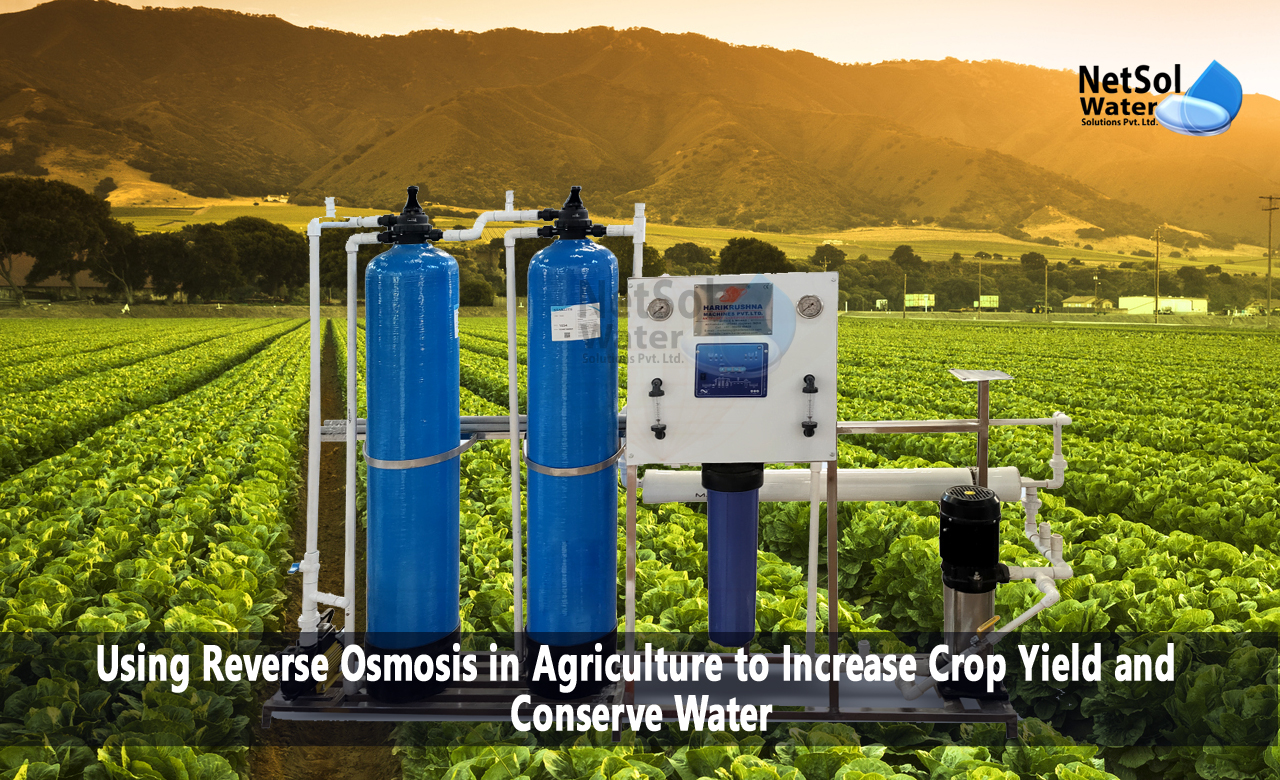Introduction:
As the global population continues to grow, ensuring food security becomes a paramount concern. Agriculture, being a water-intensive industry, faces the challenge of optimizing water resources while increasing crop yield. Reverse osmosis (RO) technology has emerged as a powerful tool in agriculture, offering the potential to enhance crop productivity and conserve water. In this blog, we will explore the application of reverse osmosis in agriculture and how it can contribute to increased crop yield and water conservation.
Using RO in Agriculture to Increase Crop Yield and Conserve Water
1. Improved Water Quality:
Reverse osmosis plays a crucial role in enhancing water quality for agricultural purposes. By effectively removing contaminants such as salts, minerals, pesticides, and pathogens, RO systems provide a reliable source of clean water for irrigation. Water with high purity and low salinity ensures optimal nutrient uptake by crops, minimizing the risk of soil salinization and improving overall crop health. Improved water quality translates to enhanced crop yield and quality.
2. Optimal Nutrient Management:
RO technology enables precise control over the nutrient content of irrigation water. By utilizing reverse osmosis, farmers can eliminate unwanted nutrients and tailor the nutrient composition according to specific crop requirements. This precise nutrient management optimizes plant growth, maximizes nutrient uptake efficiency, and minimizes nutrient leaching into the environment. As a result, crops receive the necessary nutrients in the right proportions, leading to increased productivity and reduced environmental impact.
3. Efficient Water Use:
Water scarcity is a growing concern in agriculture. Reverse osmosis aids in efficient water use by providing a means to recycle and reuse water. RO-treated wastewater or brackish water can be used for irrigation, reducing reliance on freshwater sources and mitigating the strain on water supplies. By implementing RO systems, farmers can optimize water usage, minimize water loss due to evaporation and runoff, and ensure that every drop counts, thereby conserving water resources.
4. Salinity Control:
Salinity is a major challenge in agriculture, particularly in areas with limited freshwater resources. Reverse osmosis removes salts from water, helping to combat salinity-related issues. By utilizing RO-treated water, farmers can prevent the accumulation of salts in the soil, which can hinder crop growth and productivity. Salinity control through reverse osmosis allows for sustainable cultivation in areas prone to high salinity, enabling farmers to maximize crop yield in challenging environments.
5. Drought Resilience:
Droughts pose significant risks to agriculture, leading to yield losses and economic hardships for farmers. Reverse osmosis provides a solution by enabling the utilization of alternative water sources. RO systems can efficiently treat brackish water, wastewater, or other non-conventional water sources, ensuring a consistent water supply during drought periods. By utilizing RO-treated water, farmers can maintain irrigation activities, promote crop growth, and mitigate the adverse effects of water scarcity on crop yield.
6. Sustainable Farming Practices:
The integration of reverse osmosis in agriculture aligns with sustainable farming practices. By conserving water, optimizing nutrient management, and minimizing the environmental impact, RO systems promote sustainable agriculture. Water conservation through RO reduces the strain on freshwater sources and protects ecosystems. Moreover, efficient nutrient management prevents excessive nutrient runoff, minimizing water pollution and preserving water quality.
Conclusion:
Reverse osmosis technology offers significant potential in agriculture for increasing crop yield and conserving water. By improving water quality, optimizing nutrient management, and promoting efficient water use, RO systems contribute to sustainable farming practices and address water scarcity challenges. The adoption of reverse osmosis in agriculture can help ensure food security, maximize productivity, and minimize the environmental footprint of farming operations. As the technology continues to advance, its integration into agriculture will play an increasingly important role in sustainable and efficient food production.
Netsol Water is Greater Noida-based leading water & wastewater treatment plant manufacturer. We are industry's most demanding company based on client review and work quality. We are known as best commercial RO plant manufacturers, industrial RO plant manufacturer, sewage treatment plant manufacturer, Water Softener Plant Manufacturers and effluent treatment plant manufacturers. Apart from this 24x7 customer support is our USP. Call on +91-9650608473, or write us at enquiry@netsolwater.com for any support, inquiry or product-purchase related query.



